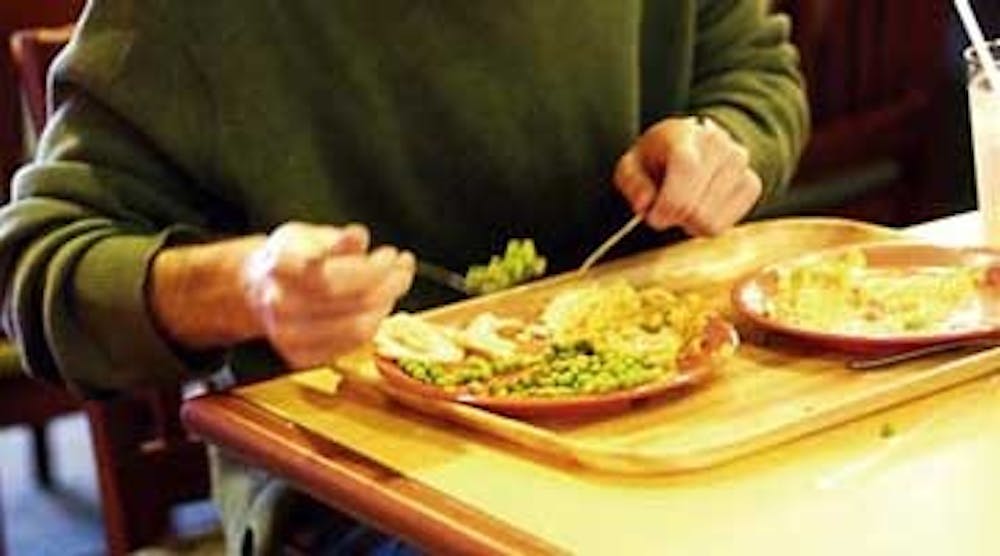
Can't use up all your meals? You're not alone.
Penn's meal plan system has long been a source of dissatisfaction among students, whose complaints range from the high price of plans to dining halls' limited hours of operation. And as the semester comes to a close, students are often left with dozens of unused meals.
"We believe meal plans connect students to their College Houses, other students and make sure students get adequate nutrition their first year," said director of Business Services Laurie Cousart.
But some students, while agreeing with the concept behind meal plans, still expressed discontent about the plans' costs and other factors.
"It's a huge waste of money, the dining halls are unhealthy, and I use way more Dining Dollars than meals," said College freshman Julia Swanson, who said an increase in Dining Dollars and a decrease in meals would make the plans more attractive.
All incoming freshman undergraduates are required to purchase one of four first-year meal plans for about $4,000 that range from the Liberty Plan, with 250 all-you-can-eat meals and $800 Dining Dollars, to the Quaker Plan, with 650 meals and $100 Dining Dollars.
"It's not exactly as simple as taking the total cost and dividing it by the number of meals," said Cousart.
She said that the price of plans takes into account costs for the entire year, including labor, dining hall furniture and maintenance and special events such as brunches in the Quad and Guest Chef nights.
Another common complaint is the hours dining halls keep.
"I frequently find myself wanting to eat when the dining halls aren't open," said College freshman Dave Harbage, who ends up using many of his meals by buying water bottles at McClelland Hall.
After their first year, many students take advantage of the option of not buying a meal plan. Despite six additional, often cheaper options, most students choose not to buy a plan because of costs.
"For kids who live in high rises, buying a meal plan and then being able to cook a lot of food in your kitchen for cheaper just isn't worth it," said Swanson.
Cousart pointed out that many schools don't offer the option of discontinuing a meal plan after freshman year. She also said that Dining Services does its best to respond to students' complaints.
"The meal plans as they come today - with later hours at the dining halls, takeout and Moocher Meals - are the direct result of listening to students," said Cousart, who said Penn Dining constantly seeks student feedback through surveys, focus groups and "secret shopper" programs in which students evaluate particular aspects of dining services.
Students sometimes cite better options offered at peer institutions - Cornell University boasts some of the best chefs, for instance, and the cost of its meal plans are significantly cheaper. Some of the dining halls at Washington University in St. Louis are open as late as 2 a.m.
But for students like Swanson, there is at least one perk to meal plans - being able to eat together with a large group of people. She is on the women's volleyball team and says that dining halls offer a convenient place to eat with her teammates after practice, a benefit many athletes see to the current system.
The Daily Pennsylvanian is an independent, student-run newspaper. Please consider making a donation to support the coverage that shapes the University. Your generosity ensures a future of strong journalism at Penn.
DonatePlease note All comments are eligible for publication in The Daily Pennsylvanian.







